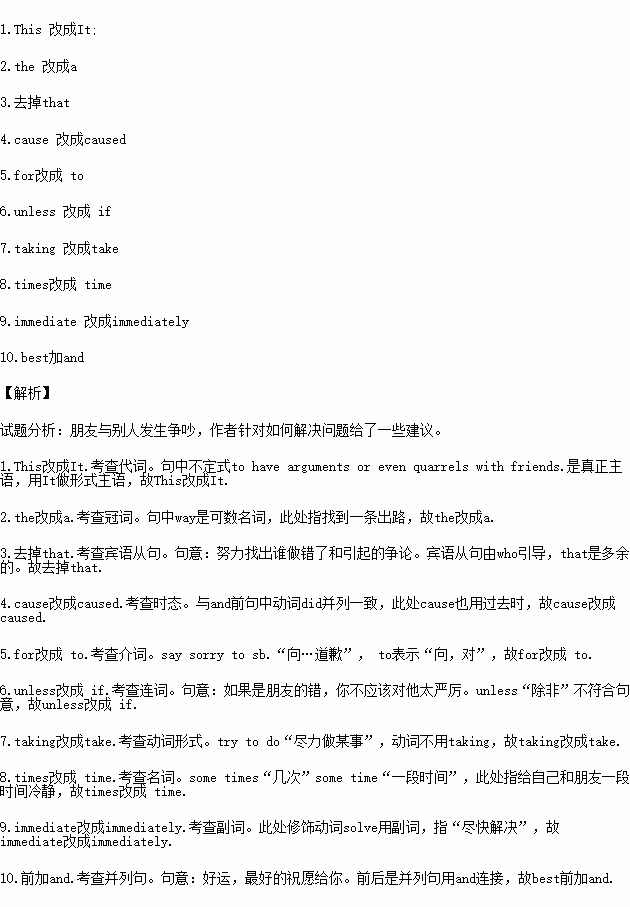ƒøƒ⁄»›
∂ÃŒƒ∏ƒ¥Ì
ºŸ∂®”¢”ÔøŒ…œ¿œ ¶“™«ÛÕ¨◊¿÷ƺ‰Ωªªª–fi∏ƒ◊˜Œƒ£¨«Îƒ„–fi∏ƒƒ„Õ¨◊¿–¥µƒ“‘œ¬◊˜Œƒ°£Œƒ÷–π≤”–10¥¶¥ÌŒÛ£¨√øæ‰÷–◊Ó∂‡”–¡Ω¥¶°£
¥ÌŒÛ…ʺ∞“ª∏ˆµ•¥ µƒ‘ˆº”°¢…æ≥˝ªÚ–fi∏ƒ°£
‘ˆº”£∫‘⁄»±¥ ¥¶º”“ª∏ˆ¬©¥ ∑˚∫≈(£fi)£¨≤¢‘⁄∆‰œ¬√Ê–¥≥ˆ∏√º”µƒ¥ °£
…æ≥˝£∫∞—∂‡”‡µƒ¥ ”√–±œfl(£‹)ªÆµÙ°£
–fi∏ƒ£∫‘⁄¥Ìµƒ¥ œ¬ªÆ“ª∫·œfl( ____ )£¨≤¢‘⁄∏√¥ œ¬√Ê–¥≥ˆ–fi∏ƒµƒ¥ °£
◊¢“‚£∫
1£Æ√ø¥¶¥ÌŒÛº∞–fi∏ƒæ˘Ωˆœfi“ª¥ £ª
2£Æ÷ª‘ –Ì–fi∏ƒ10¥¶£¨∂‡’fl(¥”µ⁄11¥¶∆)≤ªº∆∑÷
Hi, Joe. I have read about your situation. This is common for everyone to have arguments or even quarrels with friends. So take it easy, and find the way out.
You may follow my suggestions. First, try to find out that who did wrong and cause the arguments. If it is you, be brave enough to say sorry for your friend. And unless it is your friend, you shouldn°Øt be too hard on him or her either. Instead, try to taking it easy and be kind. Second, give yourself and your friend some times to calm down, as it is not necessary to solve the arguments immediate.
Good luck, best wishes for you!

